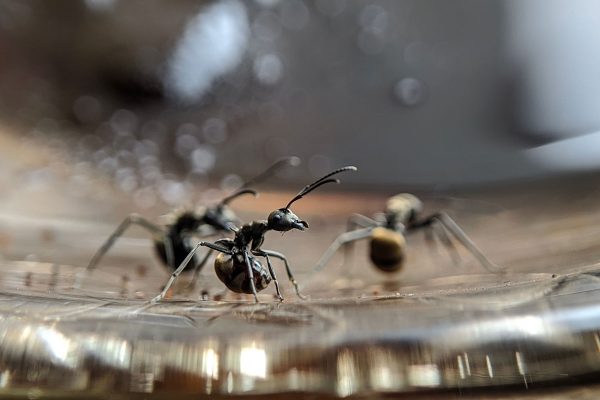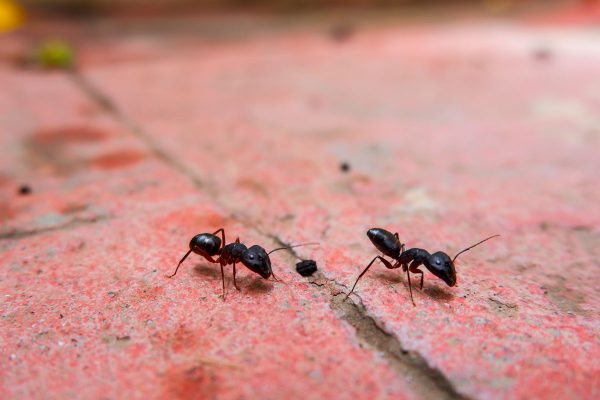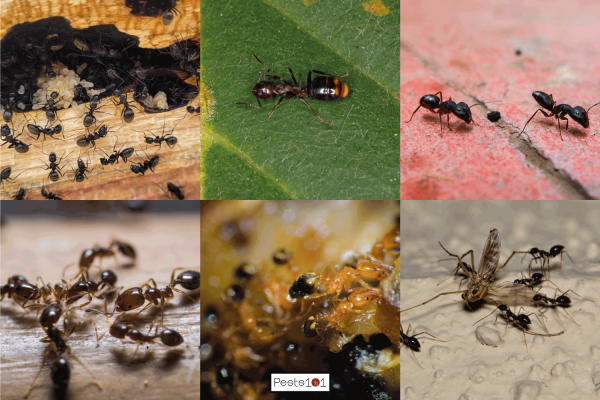Are you wondering why all of a sudden you're seeing black ants creeping inside your house? Like, how did they get there in the first place, right? That's what we will talk about today. We asked the pest experts how these insects gain access to your house and here's what they said.
Black ants get in your house through gaps and cracks in your foundation, wall, doors, and windows. Given their size, they can get though the tiniest openings. It also means that there's something inside your house that they need - be it water, food, or heat.
Keep on reading to understand better how black ants get into your house and how you can tell if there's an ant infestation. We'll also answer if black ants are harmful and give you tips on how to get rid and prevent these little black ants from coming back in your home. Let's get this started!
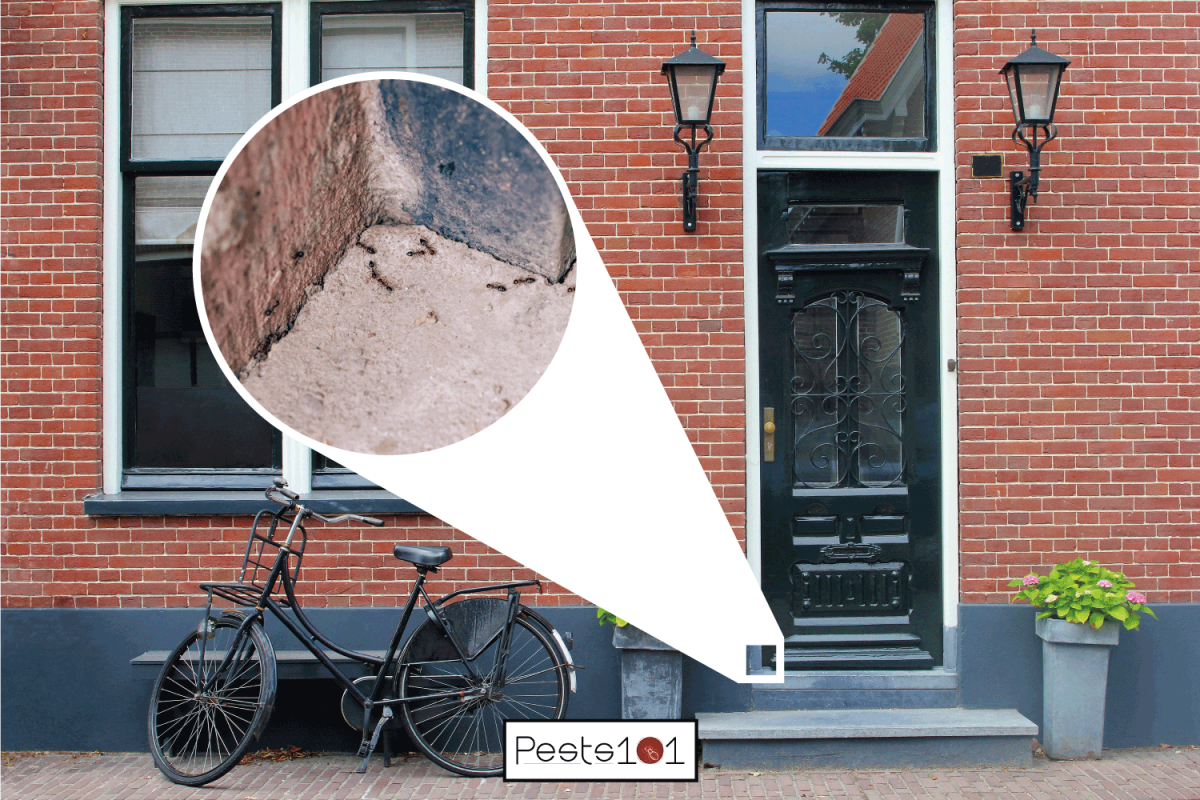
Why do I all of a sudden have black ants in my house?
Maybe you left your plate on the table only to come back a little bit later to see that it is full of black ants. Or you're taking a shower and you notice a trail of ants creeping on the bathroom wall. If this seems unusual to you, you'd be wondering how the ants got inside your house in the first place, right?
Black ants usually settle outdoors. Their main colony can be found inside rotten wood such as old tree logs and fences. This is where the queen and her soldiers initially build their nest. They can also be found underneath rocks and stones.
Eventually, they'll make satellite nests in different portions of your lawn or yard. This is where the workers would stay.
There are two main factors that'll lead them to go inside your home. These are the gaps and cracks in the walls and there would be something inside your home that they need.
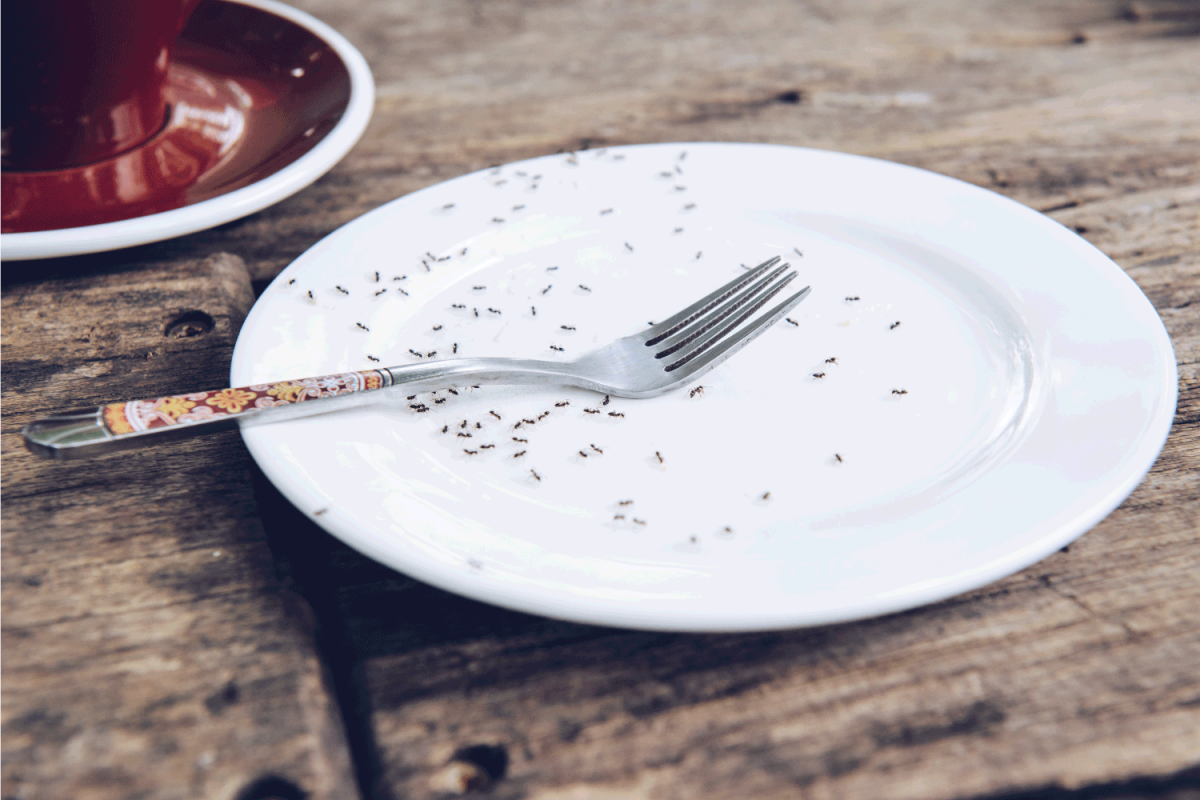
Gaps and Cracks
Understand that even a small gap with a size of 1.5 millimeters can invite ants to go inside your house. They can gain access through the cracks and gaps in your wall, foundation, door, and windows. Basically, any opening that they can fit into.
Ant Needs
Black ants are also tempted to find ways to enter your home when they have something that they need in there. This could be water or moisture, heat, and of course, food.
Black ants love infected wood surfaces where they create their nest. This tells you that aside from the black ants infestation, you might also have moisture problems inside your home.
They like rotting wood or those with moisture or fungal problems as these are softened already which makes it easier for them to excavate tunnels and build their nest.
Their presence is also a sign of improper food storage.
Speaking of food, black ants are considered omnivorous. They love to eat juices from fruits and vegetables. They also like sweets, corn meals, seeds, meats, and oily foods. They would also feast on other insects. If you have any of these at home, they would be able to smell them from afar.
These are the reasons why all of a sudden there are troops of little black ants marching inside your house.
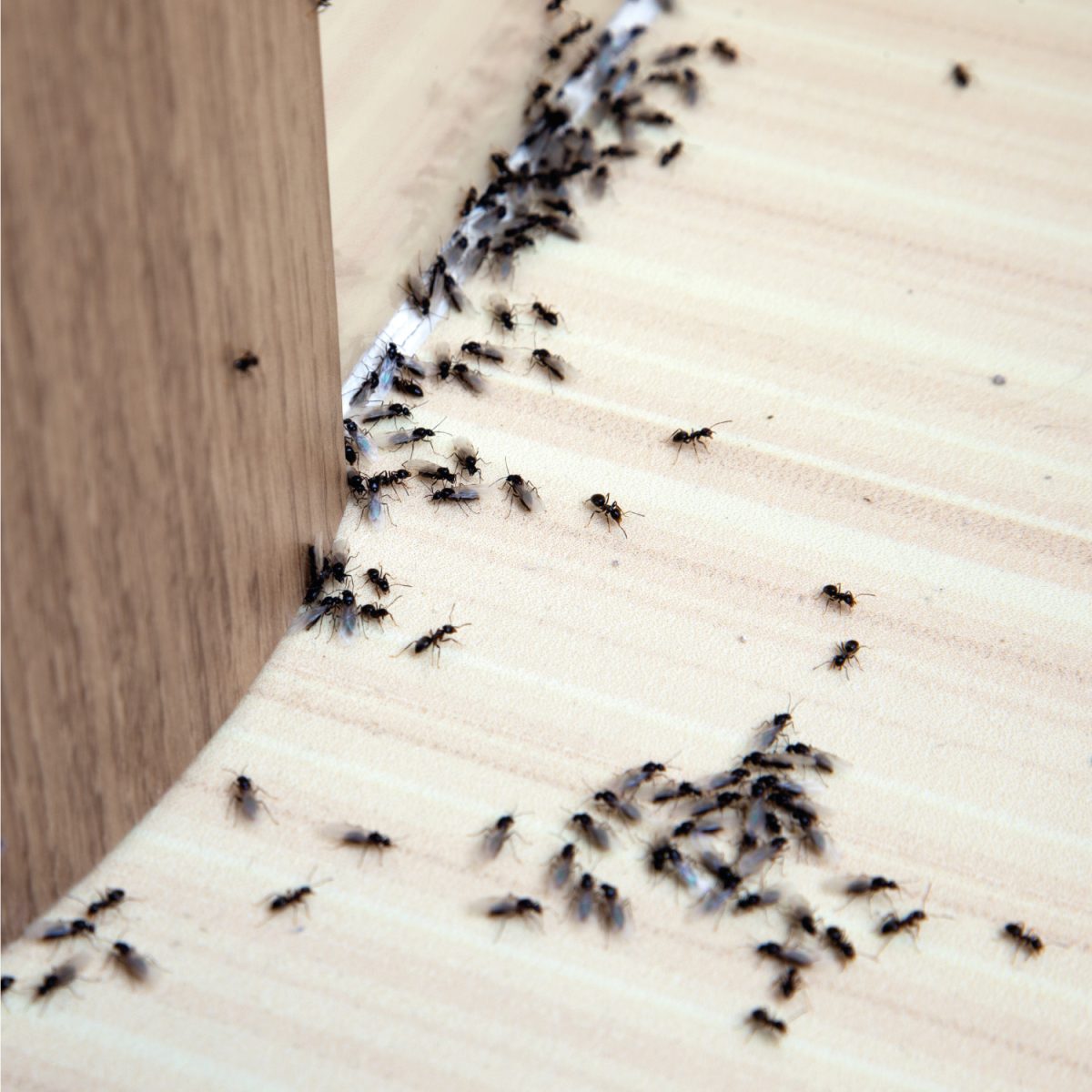
What are the signs of a black ant infestation?
The mere presence of black ants, especially in great numbers, in your bathroom, kitchen, pantry, or cabinets is already a sign of infestation. These are the soldiers who are out to get food for the colony.
Another sign that you should look out for are holes along wooden surfaces with sawdust particles on top. Black ants don't eat wood. They penetrate the wood so that they can make a nest at the end of the tunnel. This explains why you see traces of sawdust on their nest.
When you notice these signs, it's time to find ways to get rid of them so that their colony won't continue to reside in your house.
Are black ants harmful?
Black carpenter ants do bite. Their jaws are powerful and once bitten, you'll be injected with formic acid that causes the burning sensation on the skin. But the pain doesn't usually last long. The ant bite isn't expected to cause any other adverse side effects to your health unless you're allergic to ant bites.
However, these ants can pose a significant threat to your property or wooden structures at home. They can invade walls, cabinets, wood fixtures, and furniture.
They penetrate the composition of these materials so they can build their nest. But this would also mean that the structural integrity may be compromised.
Besides, their presence in sheer number is enough to make them a nuisance. You wouldn't want to have black ants crawling over your house, food, or your skin, would you?
If you don't store your food properly, they will be crawling and feasting over it in a few moments. Considering the rather unhygienic places that they've been to obtain food, you should be on the lookout when they crawl over your food, utensils, and kitchenware.
Black ants may not harm you directly but can cause damage to your home which is why it is to your best interest to find ways to control their infestation in your home ASAP.
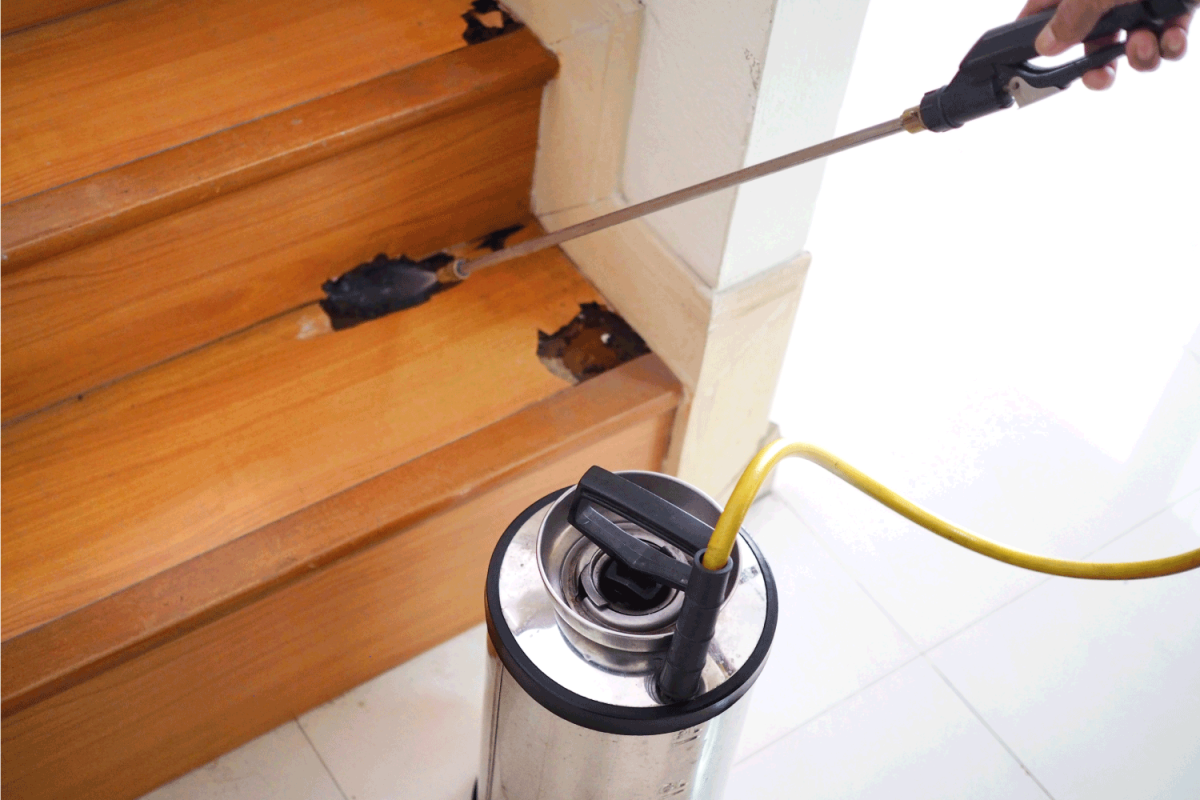
How do I get rid of ants?
We've been reiterating the importance of managing the infestation of these little black ants, especially inside your home. So, what is the most effective way to achieve this?
Pest control experts say that it requires vigilance on your part and a combination of various treatments before you can eliminate black ants in your home. The process could take one or two weeks.
Here's what you need to do.
- Conduct a thorough inspection of their nest or where they are staying. This is your target to get rid of the entire colony. We've already mentioned earlier the signs that you should be looking for.
- Plan an appropriate treatment. Since it is inside your home, you might want to settle for the natural method which can be through the use of boiling water or vinegar. But if you want something stronger, there are also ant killers that you can buy in the market.
- Eliminate their water source. This could be any standing water within the house. This also means you have to address moisture issues inside your home as black ants also thrive in damp places.
- Cut off plants and branches of trees that are touching the walls of your house. They use these as a bridge to get inside different portions of your house. Think of tree branches as their elevators so they can reach higher places in your home such as the windows upstairs.
- Seal all cracks and gaps around the perimeter of your home. Look for openings in your foundation, walls, doors, windows, and the holes for plumbing and electricity. Close the gaps accordingly.
- Don't keep stacks of wood inside the house or your garage because they would love to build their nests there. Yes, even if the wood is dry and not infected with moisture and fungal problems, black ants can still choose to settle there.
- Keep your home clean. Take out the trash and always wash the dishes. Vacuum regularly and sweep away little morsels of food that would tempt the ants.
Check out this liquid ant killer on Amazon.
Ridding ants is a combination of killing the ant colony and preventing them from coming back so that you won't have to deal with an infestation of black ants in your home.
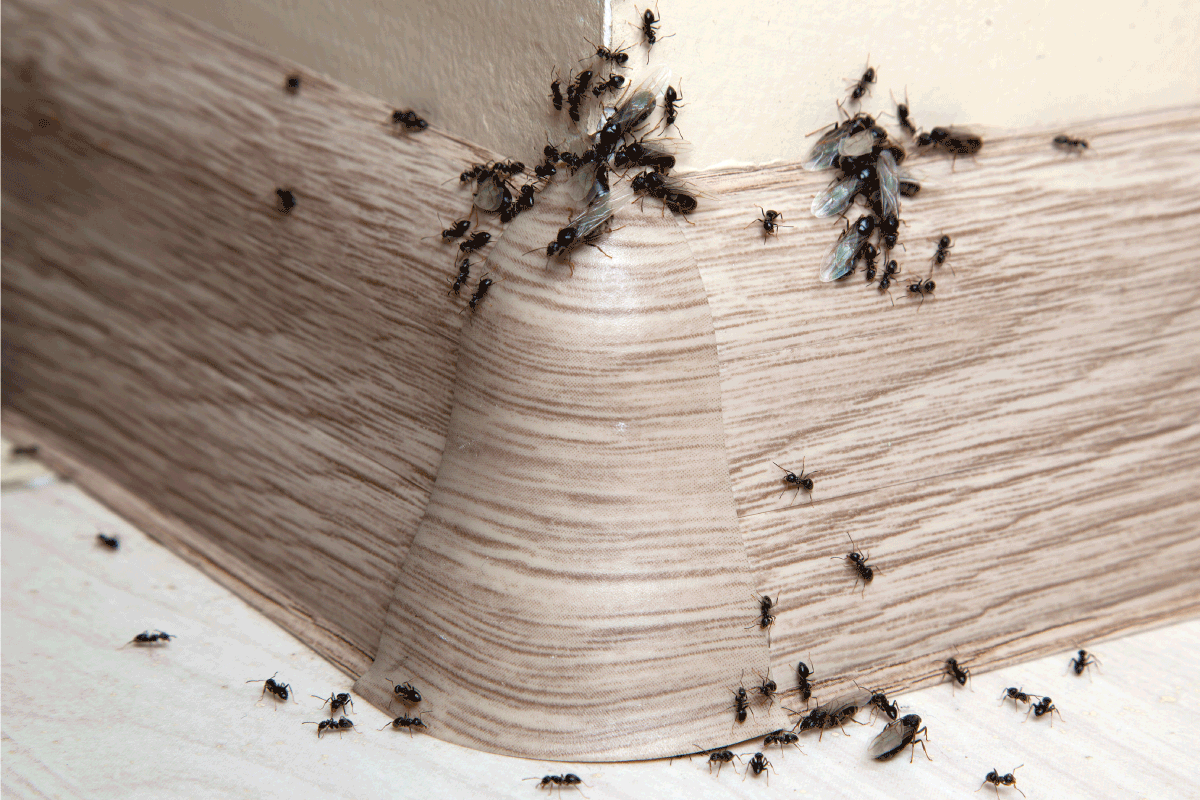
Final Thoughts
Make sure you seal all openings into your home and clear or store properly all ant-tempting food sources so that you don't invite them inside your house.
If you would want to know more about pests bothering you at home, feel free to visit the following links:


